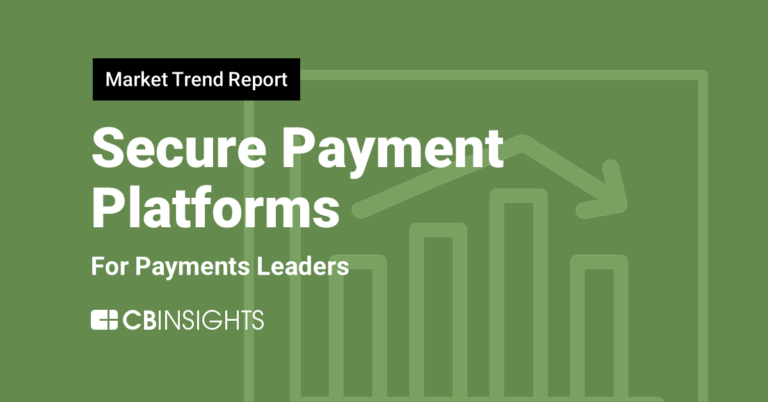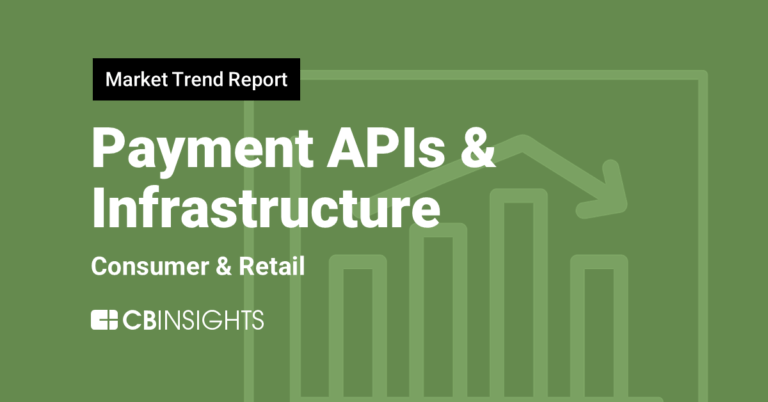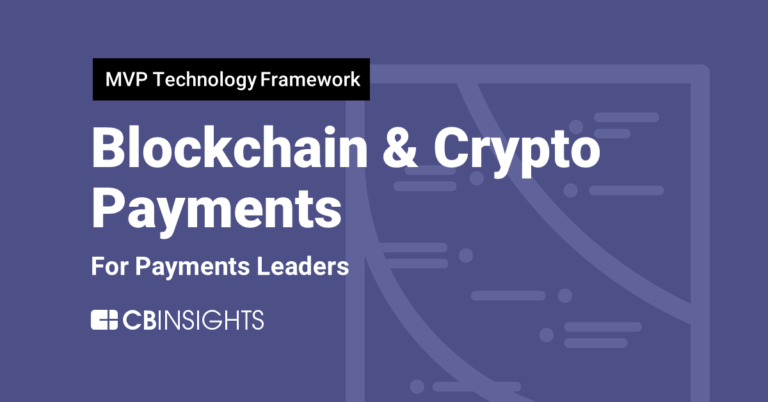
Checkout.com
Founded Year
2012Stage
Valuation Change - II | AliveTotal Raised
$1.83BValuation
$0000Revenue
$0000Mosaic Score The Mosaic Score is an algorithm that measures the overall financial health and market potential of private companies.
-10 points in the past 30 days
About Checkout.com
Checkout.com is a financial technology company that provides payment processing services. The company offers a platform for businesses to accept payments, issue cards, and manage payouts. Checkout.com serves sectors such as e-commerce, fintech, gaming, cryptocurrency, marketplaces, payment facilitators, and travel. Checkout.com was formerly known as Opus Payments. It was founded in 2012 and is based in London, United Kingdom.
Loading...
ESPs containing Checkout.com
The ESP matrix leverages data and analyst insight to identify and rank leading companies in a given technology landscape.
The automated payments reconciliation market provides a streamlined and efficient solution for reconciling payments. Auto reconciliation refers to the automated process of matching incoming payments with corresponding invoices or transactions, eliminating the need for manual reconciliation efforts. By automating the reconciliation process, businesses can save time, reduce errors, and improve finan…
Checkout.com named as Leader among 15 other companies, including Stripe, GoCardless, and FloQast.
Checkout.com's Products & Differentiators
Consolidated payment technology platform
Checkout.com's consolidated payment technology platform offers merchants an all-in-one solution featuring a fully proprietary payment processing, acquiring, and payment gateway, resulting in offering optimal authorization rates and complete access to data.
Loading...
Research containing Checkout.com
Get data-driven expert analysis from the CB Insights Intelligence Unit.
CB Insights Intelligence Analysts have mentioned Checkout.com in 11 CB Insights research briefs, most recently on Aug 23, 2024.
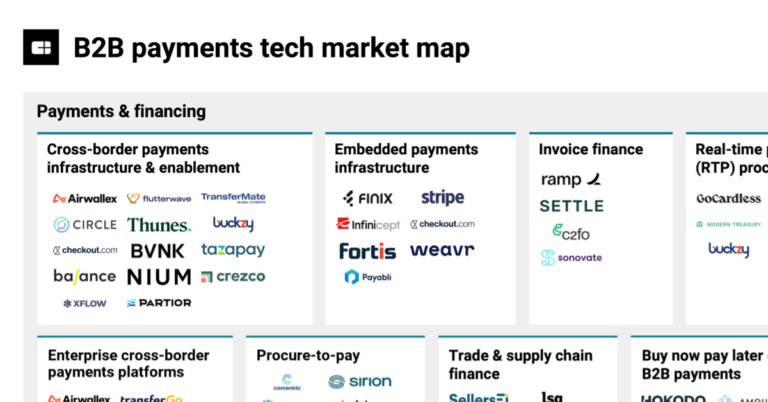
Aug 23, 2024
The B2B payments tech market map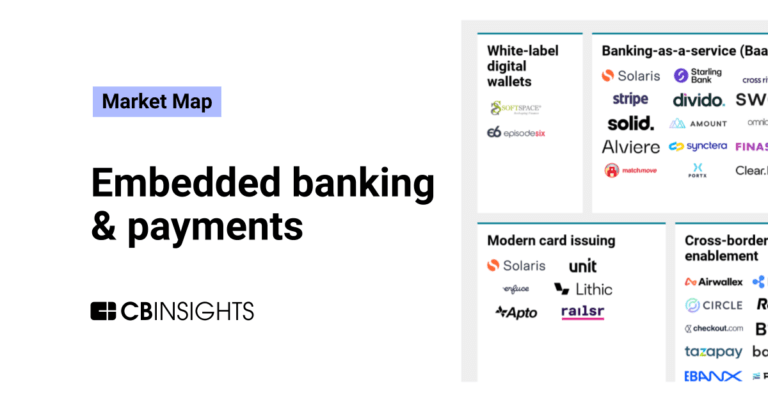
May 8, 2024
The embedded banking & payments market map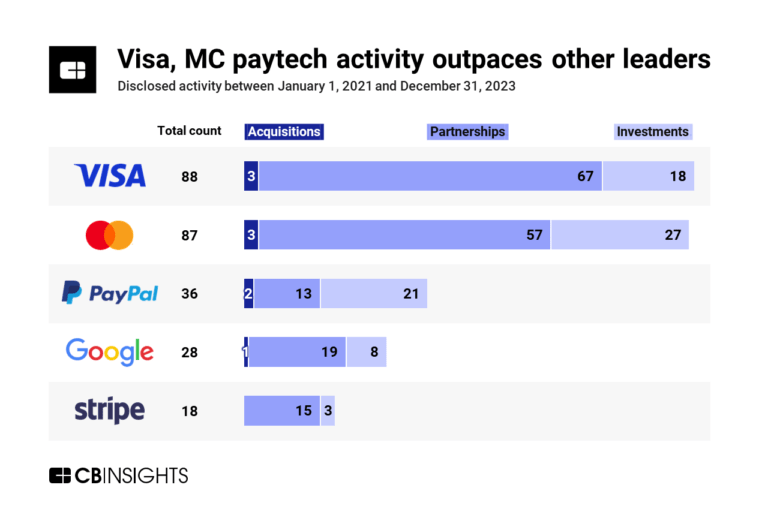
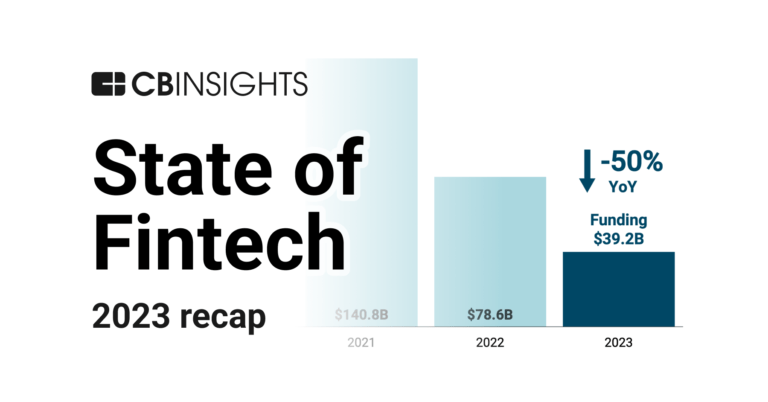
Jan 18, 2024 report
State of Fintech 2023 ReportExpert Collections containing Checkout.com
Expert Collections are analyst-curated lists that highlight the companies you need to know in the most important technology spaces.
Checkout.com is included in 9 Expert Collections, including E-Commerce.
E-Commerce
11,559 items
Companies that sell goods online (B2C), or enable the selling of goods online via tech solutions (B2B).
Unicorns- Billion Dollar Startups
1,286 items
Payments
3,199 items
Companies in this collection provide technology that enables consumers and businesses to pay, collect, automate, and settle transfers of currency, both online and at the physical point-of-sale.
Conference Exhibitors
5,302 items
Fintech
14,013 items
Excludes US-based companies
Fintech 100
749 items
250 of the most promising private companies applying a mix of software and technology to transform the financial services industry.
Latest Checkout.com News
Sep 5, 2025
False declines cost businesses billions globally as AI-driven scams force tighter fraud controls that accidentally block legitimate customers. What’s happening: A spike in AI-driven scams is forcing businesses to tighten fraud controls, but global revenue losses from false declines now run into the billions each year as legitimate transactions get blocked alongside fraud. Why this matters: With 61% of Australians hit by payment fraud and seasonal scam surges reaching 300%, businesses face an impossible choice between security and sales conversion, risking customer relationships and revenue in equal measure. Australian businesses are caught in a dangerous balancing act. As fraudsters deploy increasingly sophisticated AI-powered scams, from hyper-personalised phishing to deepfake voice calls, companies are cranking up their security measures. But this defensive stance is creating an unexpected casualty: legitimate customers. According to Checkout.com, global revenue losses from false declines run into the billions each year. This suggests businesses are overindexing, with legitimate transactions being blocked alongside fraud, and Australian businesses face the same risk. The trust crisis The Trust in Australia’s Digital Economy 2025 report finds that seasonal scam peaks, such as the 300% surge in ATO impersonation scams this tax season, are prompting tougher fraud checks that can inadvertently reject real customers and drain revenue. Many of these attacks are powered by AI tools that are eroding trust in the digital economy and forcing businesses to balance security with sales conversion. The report reveals 61% of Australians have been hit by payment fraud in the past year, leading some customers to abandon purchases if a checkout experience feels slow, unfamiliar or insecure. The data paints a concerning picture of consumer anxiety: 52% are concerned about AI-generated fraud, 63% see AI-powered shopping tools as the top privacy risk, and 56% feel under-informed about how to stay safe online. Lost sales compound losses “Every false decline is a lost sale and often a lost customer and over time those losses can seriously damage a business,” says Monique Biady, Head of Commercial AU at Checkout.com. The report reveals 40% of people have abandoned a cart due to security concerns and 42% wouldn’t return after a failed payment. In Australia this is especially critical, as the problem is compounded by growing consumer mistrust. “Businesses need real-time fraud prevention that stops scams without blocking legitimate shoppers, because you can’t grow revenue if you’re turning away the people who want to pay you,” she said. Intelligence over brute force While AI is powering more sophisticated scams, it is also the most effective tool for stopping them without hurting conversion. By combining machine learning, behavioural analytics and adaptive authentication, businesses can detect and block threats in real-time while keeping approval rates high, an approach used in Checkout.com’s Intelligent Acceptance technology. The technology is critical in peak trading periods, when fraud attempts and false declines both spike. Seasonal scam surges occur not just at tax time, but also around major retail events, travel peaks and high-demand product launches. Building competitive advantage “Two-thirds of consumers say their trust in a business hinges on what happens at the checkout,” said Biady. “Slow, clunky or overzealous fraud checks drive cart abandonment, often to competitors who can offer a faster, safer experience. Getting this balance right means reducing lost sales from false declines, protecting customers from fraud without adding friction, and building long-term loyalty in a market where trust drives repeat spend,” she said. As fraud tactics evolve, a coordinated approach between businesses, regulators and tech providers is key to strengthening Australia’s digital economy. While these figures highlight growing consumer anxiety, they also underscore the opportunity for businesses to differentiate on trust and turn payment performance into a competitive advantage. The Trust in Australia’s Digital Economy 2025 report surveyed more than 18,000 consumers across 16 countries. Keep up to date with our stories on LinkedIn , Twitter , Facebook and Instagram . What do you think?
Checkout.com Frequently Asked Questions (FAQ)
When was Checkout.com founded?
Checkout.com was founded in 2012.
Where is Checkout.com's headquarters?
Checkout.com's headquarters is located at Sheperdess Walk, London.
What is Checkout.com's latest funding round?
Checkout.com's latest funding round is Valuation Change - II.
How much did Checkout.com raise?
Checkout.com raised a total of $1.83B.
Who are the investors of Checkout.com?
Investors of Checkout.com include DST Global, Blossom Capital, GIC, Insight Partners, Endeavor and 16 more.
Who are Checkout.com's competitors?
Competitors of Checkout.com include Payall, Airwallex, Rapyd, Open Payments, Total Processing and 7 more.
What products does Checkout.com offer?
Checkout.com's products include Consolidated payment technology platform.
Who are Checkout.com's customers?
Customers of Checkout.com include Curve, Careem, Dott and Wise.
Loading...
Compare Checkout.com to Competitors

Rapyd focused on global payment processing and financial services infrastructure. The company provides products including online payment acceptance, in-store payment solutions, and financial services for businesses, such as global accounts and multi-currency management. Rapyd's platform supports e-commerce transactions, lending, remittances, and offers compliance and risk management solutions. It was founded in 2016 and is based in Essex, United Kingdom.

Nium operates within the financial technology sector and provides services including multi-currency accounts, global card issuance, and solutions for sending payouts to over 190 countries, facilitated through their API and platform. Nium serves financial institutions, money transfer operators, and enterprises across sectors such as payroll, marketplaces, spend management, the creator economy, and travel. Nium was formerly known as InstaReM Pte. Ltd.. It was founded in 2014 and is based in Singapore, Singapore.

Buckzy Payments operates within the financial technology sector. It provides cross-border payment solutions. The company offers a cross-border payment network and Banking-as-a-Service on an embedded finance platform, which includes APIs for transaction banking and customer journeys. Buckzy serves financial institutions, fintechs, marketplaces, and multinational companies. It was founded in 2018 and is based in Toronto, Canada.

Thunes operates as a global payment infrastructure provider in the financial technology sector. The company offers cross-border payment solutions, enabling businesses and their customers to send and receive payments worldwide with a single API integration. Thunes primarily serves sectors such as money transfer operators, payment service providers, creator economy platforms, marketplaces, digital merchants, banks, and mobile wallets. Thunes was formerly known as TransferTo. It was founded in 2016 and is based in Singapore.

DemandPay provides omnichannel payment solutions in the fintech sector. Its offerings include automating recurring payments, enabling real-time payment tracking, and facilitating direct bank transfers for businesses. DemandPay serves sectors that rely on collections and require payment processing, such as broadband, cable TV, and jewelry brands. It was founded in 2017 and is based in Bengaluru, India.

Airwallex develops a global financial platform focusing on providing business payment solutions within the financial technology domain. The company offers an array of services, including global business accounts for managing finances, international transfers, multi-currency corporate cards, and online payment processing capabilities. It primarily serves the payment industry. The company was founded in 2015 and is based in Melbourne, Australia.
Loading...


